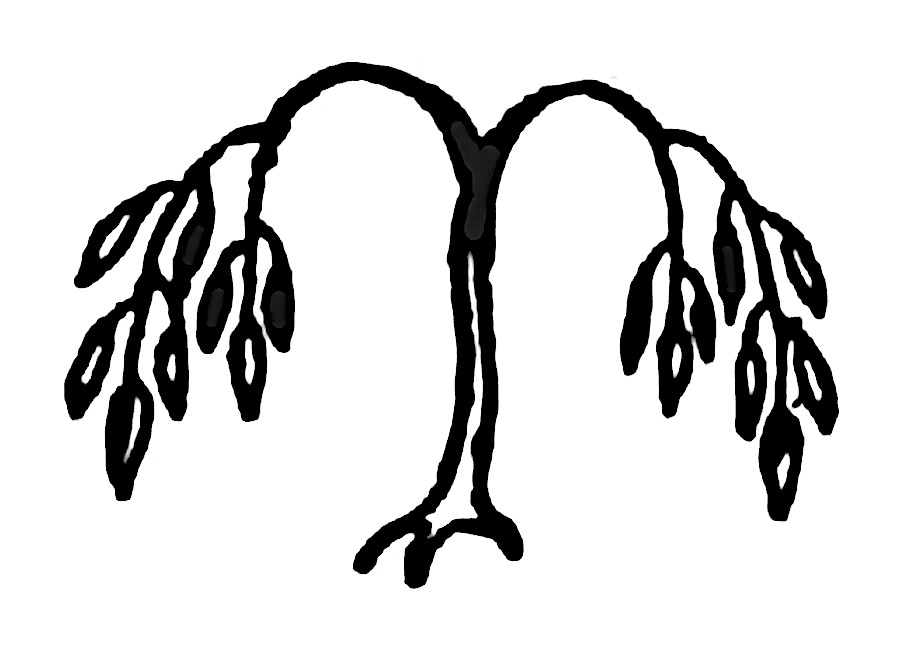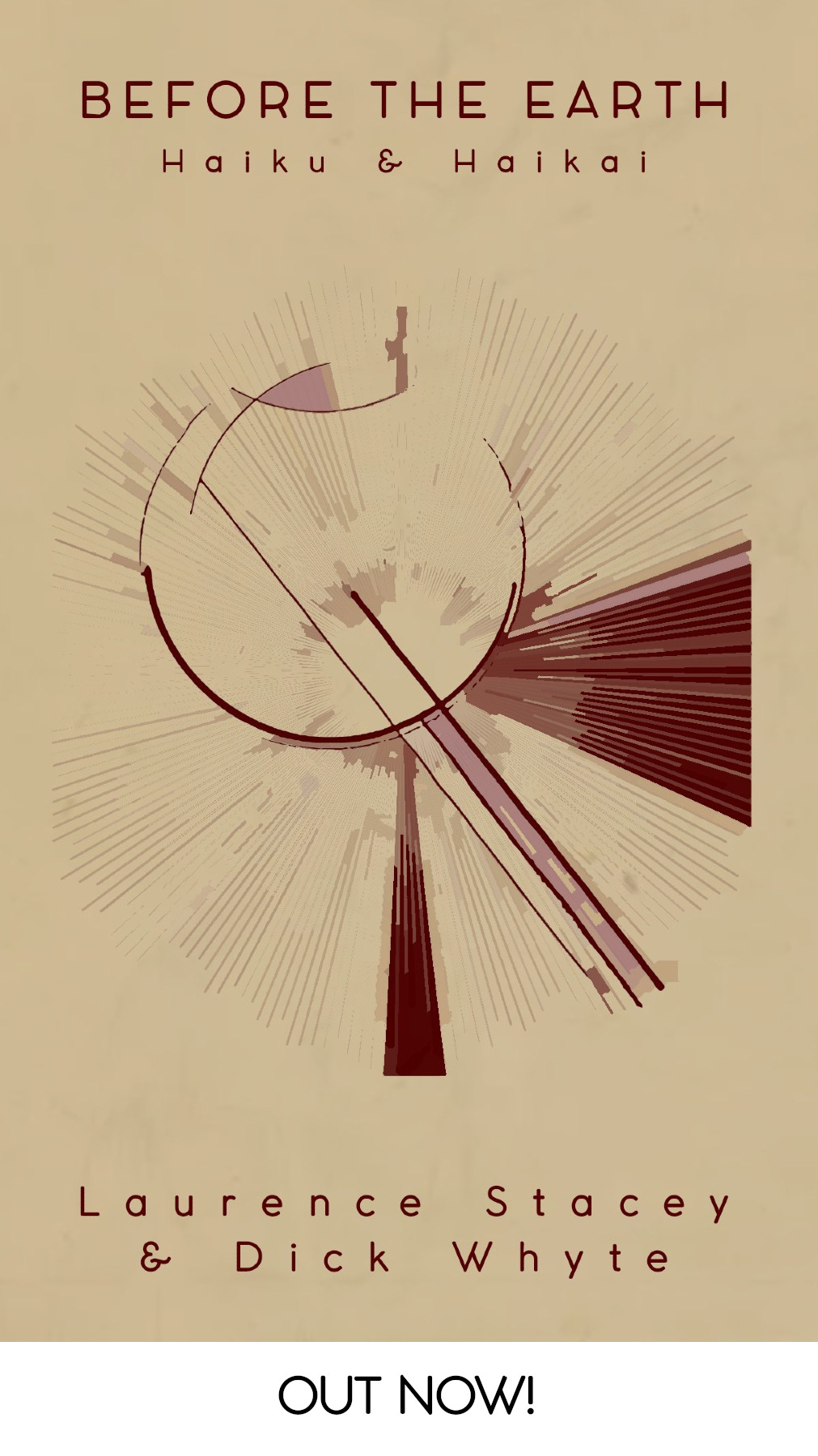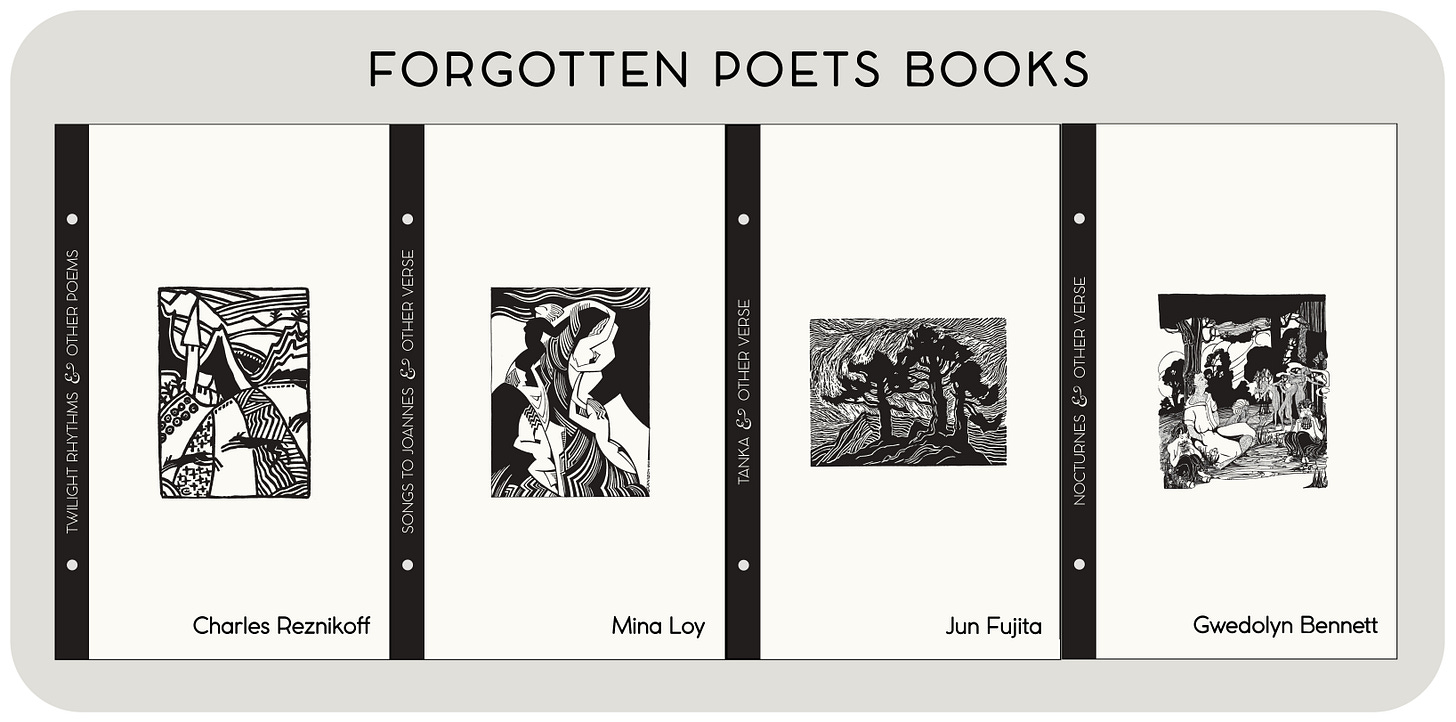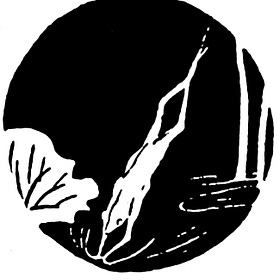Albert Edmund Trombly - 5 Short Poems (1916-1922)
Forgotten Poems #118 || Reissue #22
—: The Trees :—
I
Through the afternoon the breeze
Looses leafy tongues of trees.
Nodding heads accentuate
What the leaves articulate.
Twilight comes; the windless air
Stills the gossip stirring there.
In the night perhaps they sleep;
But the roots of trees lie deep.
II
Poets sing their shade and fruits
Never guessing at their roots.
Still, they too have timid souls
Underneath their rugged boles,
Masters of an occult land
We could better understand.
Poets would be more profound
If their roots took underground.
—: April :— The blossoms of the cherry fall And flutter to the garden-wall; The frogs in unison blow and blow The shrill notes of a piccolo; The moon in the pool to the moon in the sky Trembles and looks up wistfully.
—: The Chickadee :— Sing, little fellow, Chick-a-dee-dee! Birches are yellow Sing, little fellow! Sing us thy mellow, Gay-hearted glee; Sing, little fellow, Chick-a-dee-dee!
—: Vignette :— April, you come Laughing at them who sorrow and fret, Smelling of lilac and violet.
—: Had I Been Monk :— Had I been monk and you a nun, Under a thirteenth century sun, Although your convent had been far From mine, as convents sometimes are, I would have known that you were there, And you of me had been aware; And I'd have stolen out at night, When the holy monks and nuns recite Their beads, and gone with a hot foot-fall Up to your convent and scaled the wall, And panting crept to your very cell, And wooed you with the fire of hell!
Albert Edmund Trombly was; “Born in Chazy, New York. Five years later his family removed to Worcester, Massachusetts, and there was educated. He was graduated from the Worcester State Normal School in 1910. In 1913 he took his A.B. at Harvard , and since then has been instructor of Romance languages in the University of Pennsylvania. At the latter university he received an M.A. degree in 1915.” (The Newark Anniversary Poems, 1917) “On the faculty of the University of Texas, and has written a monograph on Rossetti.” (The Poet's Pack, 1921) In the 1920s, “a professor of Romance languages at the University of Missouri.” (Southwest Review, 1925)
—: Fragments for Albert Trobly :— By Dick Whyte Poems are trees if you please Words are sticks broken in bits Put back together letter by letter Printed on leaves of papery bees Poems are trees if you please
Forgotten Poets Presents:
Forgotten Poems, a living anthology of obscure and out-of-print poetry from the late-1800s and early-1900s. Explore the archives:
More from The Book of Lost Rhymes . . .
Joseph Rocco - 4 Very Short Poems (1929-1930)
—: Paradigm (1929) :— I have only You have Comma Dream I had often You had Stop Wish I love You love Apostrophe Sleep . . .
Lewis Alexander - 4 Short Poems & Some Haiku (1923-28)
—: Dream Song :— Walk with the sun, Dance at high noon; And dream when night falls black; But when the stars Vie with the moon, Then call the lost dream back. . .
Paul Laurence Dunbar - 6 Short Poems (1896-1903)
—: A Choice (1899) :— They please me not—these solemn songs That hint of sermons covered up. 'Tis true the world should heed its wrongs, But in a poem let me sup . . .
H.B. Armitage - 2 Short Poems (1926-27)
—: Evolution :— I think a child should take a monkey's hand, And say, “Whatever comes, we have it, you and I . . . (ee-e-e-k, eek!) Let us be restless, chatter, squeal and shriek...
More poems about the moon . . .
Margie-Lee Runbeck - 4 Short Poems (1921-26)
“Learning is rebellion… Every bit of new truth discovered is revolutionary to what was believed before.” . . .
More poems about flowers . . .
André Derain - 9 Woodcuts (1919-1925)
André Derain (1880-1954) was born just outside Paris, and is primarily known as a painter. Derain was close with Matisse, and together they were a part of the Fauvist movement...
Eunice Tietjens - 7 Very Short Poems (1919-1929)
—: Epigraph :— The whole world passes at my shoulder And all flesh does is to grow older. . .





















The cadence Albert Edmund Trombly relies on is the hook that snags many early readers of poetry, who are then reeled in to the world of word play.
Oh the convent poem is quite something...I didn't know about this poet or this poem..so thank you for introducing them!